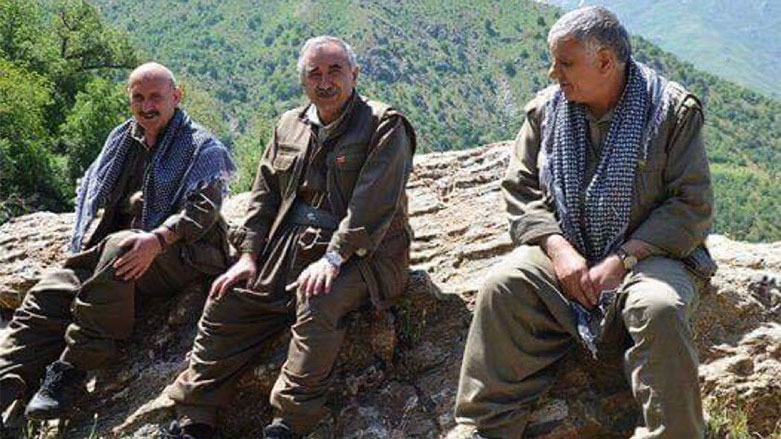Analysts say US bounty for PKK leaders won't stop Turkish hostility

ERBIL (Kurdistan 24) – Experts say that the US announcement of multi-million dollar bounties on three senior Kurdistan Workers’ Party (PKK) leaders on Tuesday will not stop Turkish hostility towards the People’s Protection Units (YPG) which the US backs in the fight against the Islamic State (IS) in Syria.
Dr. David Romano, Political Science Professor at Missouri State University, told Kurdistan 24 that the “the strange addition of the PKK leaders to a list of wanted enemies of the U.S. will not lessen Turkey's hostility towards the United States.”
“[The hostility] which has been growing ever since the AKP [Justice and Development Party] took power in 2002,” he said, “only 3 years after the U.S. captured Abdullah Ocalan for Turkey, yet is now quite a distant memory.”
“The State Department list was supposed to be for terrorists who have targeted and killed Americans - the PKK never did either.”
The outlawed group has fought a decades-long insurgency against Ankara since the 1980s in a conflict that has taken tens of thousands of lives on both sides.
Romano added that the “PKK and its PYD [Democratic Union Party] relative in Syria were probably the first to fight ISIS (IS) in Sinjar (Shingal), saving thousands of Yezidis (Ezidis) and buying time for the better armed Iraqi army and KRG peshmerga to marshal a response to the Jihadist threat.”
The PKK's executive council known as the Kurdistan Communities Union (KCK) on Wednesday said that those fighting against IS are being punished, while “those with a relationship [Turkey] with ISIS are being rewarded.”
Turkey has denied having any operational relationship or agreements with IS.
According to the KCK, PKK guerrillas played a major role in defending Kobani, Erbil, Kirkuk, and prevented a “genocide in Shingal.”
“Throughout these years, the ones whose relationship with ISIS was most questioned and talked about have been Tayyip Erdogan and his government,” said the KCK in a statement. “Now, the US putting rewards on administrators of PKK, KCK and HPG, who have paid a heavy price in the fight against ISIS, means support for Tayyip Erdogan’s and the AKP’s anti-Kurdish and anti-democracy policies.”
Aliza Marcus, a Washington DC-based analyst and author of a book on the PKK, told Kurdistan 24 that Turkey’s “demands are unlikely to stop here. The US may have bought some time, as it were, with this gesture, but offering reward money is still a fairly passive act.”
The US earlier also tried to cool down tensions through the Manbij roadmap agreement in June. As part of the plan, joint US-Turkish patrols outside the Syrian city of Manbij started on Nov. 1, but Turkey is still threatening to attack Syria’s Kurds and has carried out cross-border shelling.
“The real question is what will Turkey demand next - and how will the US respond,” Marcus added. “That said, the US is clearly making showing more of a political commitment to the Kurd-led administration in Rojava. The reward money for the PKK leaders does not indicate a change in Washington’s fundamental policy, for now, of supporting the YPG.”
Ambassador James Jeffrey, Washington’s Syria envoy, said on Wednesday said that "Contrary to the PKK, we do not define the YPG as a terrorist organization. We have never done that.”
According to Diliman Abdulkader, the Director of the Kurdistan Project at the Endowment for Middle East Truth (EMET), US made the “easy move” in an attempt to calm recent tensions with Turkey.
“[The] PKK did play a major role in the fight against ISIS, however, this proves that the US is not ready to approach the PKK,” he told Kurdistan 24.
“Kurds should rather invest in the SDF-US partnership and gain commitments from the US towards a long-term presence to keep the gains they have made in Syria,” he continued.
“The Kurds have to keep in mind that US support is incremental, support for Kurds in Syria does not equate to support for Kurds across the region, especially in Turkey.”
Editing by John J. Catherine
